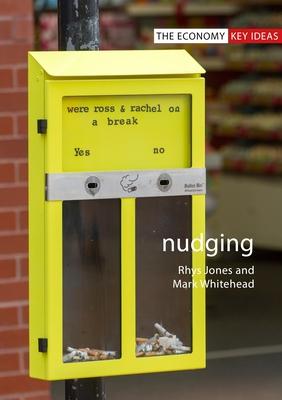Nudging is a controversial technique for changing people's behaviours. It burst into public consciousness in the early 2000s with the launch of "nudge units" and departments in government. Its use as a policy tool is particularly polarizing as it raises moral and constitutional issues about freedom of choice and coercion.
Mark Whitehead and Rhys Jones consider how the nudge as a mechanism for policy implementation came about and why it gives rise to such strong feelings. They explain what a nudge is, how it differs from other behavioural prompts, and consider whether we should use them and, if so, when and where they are best deployed. In particular, they explore how the proliferation of digital media throughout our lives has given nudging a new impetus and sphere of operation, which can be both harder for consumers and citizens to detect and more contentious.
Nudging is a controversial technique for changing people's behaviours. It burst into public consciousness in the early 2000s with the launch of "nudge units" and departments in government. Its use as a policy tool is particularly polarizing as it raises moral and constitutional issues about freedom of choice and coercion.
Mark Whitehead and Rhys Jones consider how the nudge as a mechanism for policy implementation came about and why it gives rise to such strong feelings. They explain what a nudge is, how it differs from other behavioural prompts, and consider whether we should use them and, if so, when and where they are best deployed. In particular, they explore how the proliferation of digital media throughout our lives has given nudging a new impetus and sphere of operation, which can be both harder for consumers and citizens to detect and more contentious.Paperback
$33.33